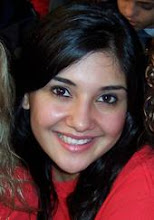This website is dedicated to exploring the act of performing race within the art of spoken word poetry. We will be exploring spoken word poetry itself and the history of performing race. Through the medium of spoken word poetry, I hope to be able to help others further the connection between spoken word and the performance of race.
Spoken word is a form of poetry, literary art, and artistic performance in which the artist speaks the poem or story they are performing. Most spoken word poetry is more of a performance art than anything else, the poet will usual perform a story or poem they have written and use different aspects of theater to emphasize the poem. The use of body-language,voice tone, and audience participation are key to the poetry.
The history of spoken word dates back practically to the beginning of human existence. Because the tools that are needed for spoken word are just one's voice, one can argue that spoken word is one of the oldest forms of art. Elements of spoken word can be seen in the days of the troubadours and storytellers who would perform their poems to groups of people. With the invention of the Gutenberg printing press in 1440 the art of poetry shifted from being a performing art to written art.
Although the 'modern' spoken word movement is thought to have started in the 1990s, we can still see the existence of it from further back in history. The Beat Poets are some of the first poets to really give spoken word a light into mainstream academia. The Beats began using spoken word poetry to speak out against the wrong societal norms of the times and their dislike for the academic world. This movement was very much politically driven, however the re-emergence of spoken word in the 1990s was not necessarily politically driven.
After the Beat movement, spoken word once again became an underground art until the 1990s. The modern movement of spoken word preached a message of positivity and tolerance. Spoken word is more of an art of the people and became an art that embraced the common man and did not cater only to the world of academia.
